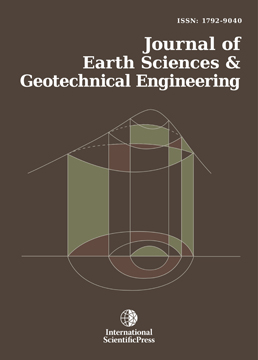Journal of Earth Sciences and Geotechnical Engineering
Field Observations of Water and Ice Problems in Railway Tunnels from a Maintenance Perspective
-
 [ Download ]
[ Download ]
- Times downloaded: 8682
Abstract
During the winter season, ice causes major problems in many Swedish railway tunnels. Ice, rock and shotcrete in the roof and on the walls may come loose and fall down, installations and cables can break due to ice loads and the tracks can become covered with ice. To maintain safety and prevent traffic disturbances, many tunnels require frequent maintenance. The removal of ice, loose rock and shotcrete is expensive and potentially risky work for the maintenance workers. To reduce maintenance costs, it is important to improve our knowledge of frost penetration inside tunnels and investigate the effect of ice pressure and frost shattering on load-bearing constructions. The aim of this investigation was to gather information about the problems caused by water leakage and its effect on the degradation of a rock tunnel when subjected to freezing temperatures. There are many factors that determine whether frost or ice formations will appear in tunnels. To collect information on ice formation problems, field observations were undertaken in five of Sweden’s railway tunnels between autumn 2004 and summer 2005. For one of the tunnels, follow-up observations also took place in March during the years 2005, 2006 and 2007.
Keywords: Railway tunnel, Field observations, Ice formation, Frost shattering, Maintenance, Degradation of rock and shotcrete, Cold climate.
